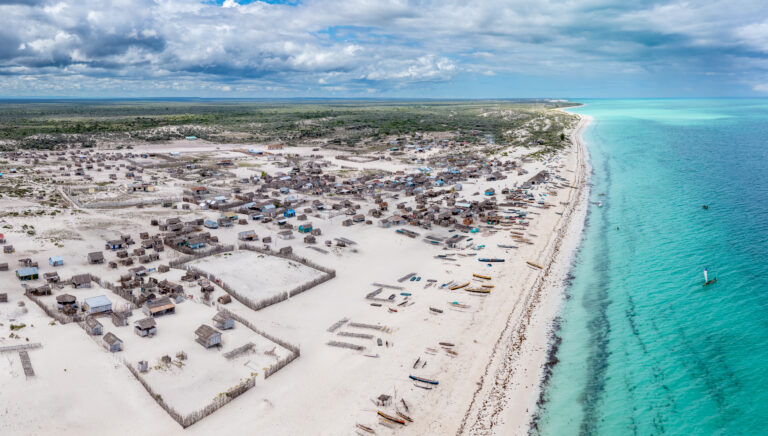Important ecosystems and livelihoods that depend upon them could be threatened in future without effective and collaborative fisheries management, researchers say.
Small-scale fishers in one of the world’s poorest countries are having to work harder than ever, and face an uncertain future without better management and data, a new analysis shows.
A study comparing catches from 1991 and 2011 in Madagascar’s Menabe region found that small-scale fishers were having to travel further afield to find fish, and catching smaller, less desirable species.
The paper, published in Frontiers in Marine Science, also showed that while overall landings had actually increased by around 700% over the 20 year period, the number of fishers rose by a similar amount, and many were using more efficient gears, masking signs of overfishing.
“Despite an increase in overall catches, our evidence points to overfishing and a critical need for better fisheries management,” said Charlie Gough, of Blue Ventures and the University of Exeter, who led the new research.
Gough said it was also clear that small-scale fishers in the region were catching fewer of the big fish.
“Species including groupers, emperors and sea bream were common in 1991 but far rarer by 2011,” she said.
This points to an unsustainable fishing phenomenon called fishing down the food webs, whereby fishers take larger and tastier fish that fetch higher prices first.
“When these become harder to find, they move onto catching species that are further down the food chain,” said Gough.
New #OpenAccess Paper: Change in fish family composition between 1991 and 2011 for all gear types. Red bars=reduced in proportional representation by weight. New Madagascar fisheries paper led by @BlueVentures Charlie Gough @exetermarine PhD student https://t.co/rYoTQ5z0g2 pic.twitter.com/wzLRc77OOQ
— Prof Brendan Godley (@BrendanGodley) August 3, 2022
The new work joins recent studies by Gough and her colleagues documenting overfishing in the region using community-collected data, and calling for a greater role for small-scale fishers in monitoring and managing their fisheries.
Fisheries are crucial to the survival of many of Madagascar’s isolated coastal communities. Demand for seafood has exploded in recent decades, connecting fishers to international markets more than ever before, and sparking a need for better data.
“Data collected by the community might not be perfect but it is key to better fisheries management,” said Robertin Rakotonirainy, Blue Ventures’ regional fisheries coordinator in Menabe. “It helps the community to identify key issues with the fishery and decide which management measures to use to overcome them and prevent future declines,” he said.
The results of wider community monitoring in the Menabe region are being used to inform the management measures and objectives of a regional fisheries management plan being developed by the regional government, USAID Mikajy, and other partners.
Watch this video blog by lead author Charlie Gough explaining her research, and read more about our work in Madagascar here.























